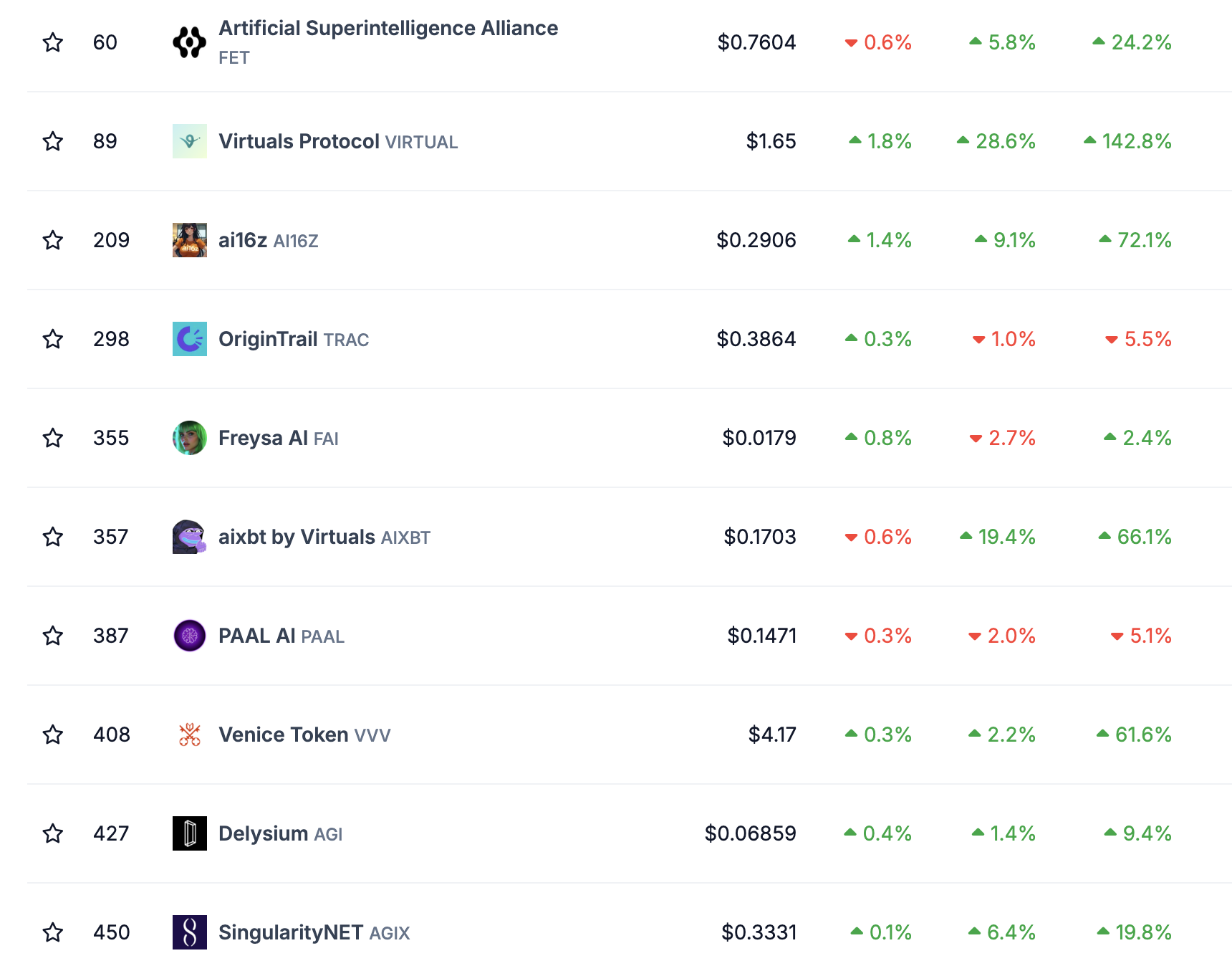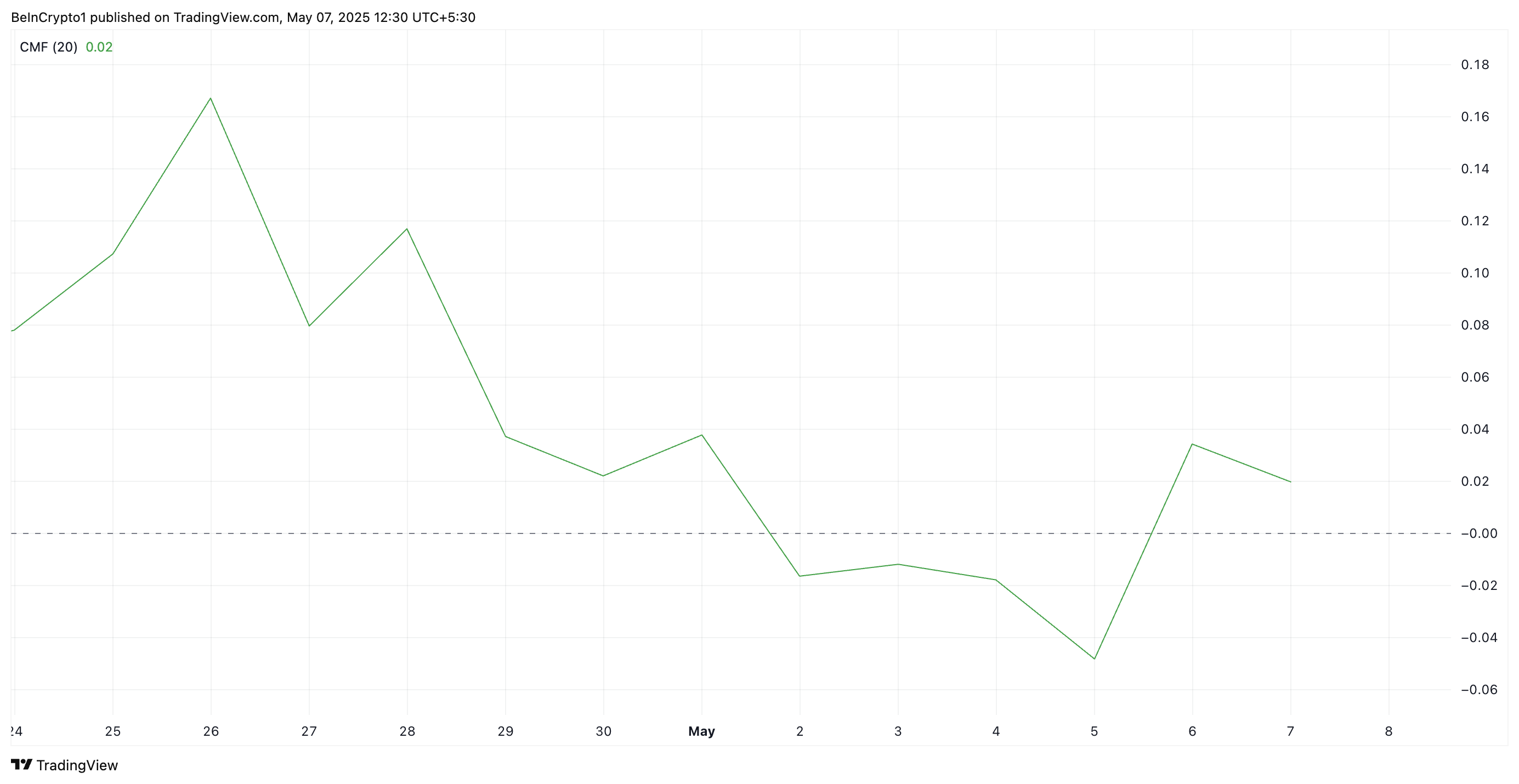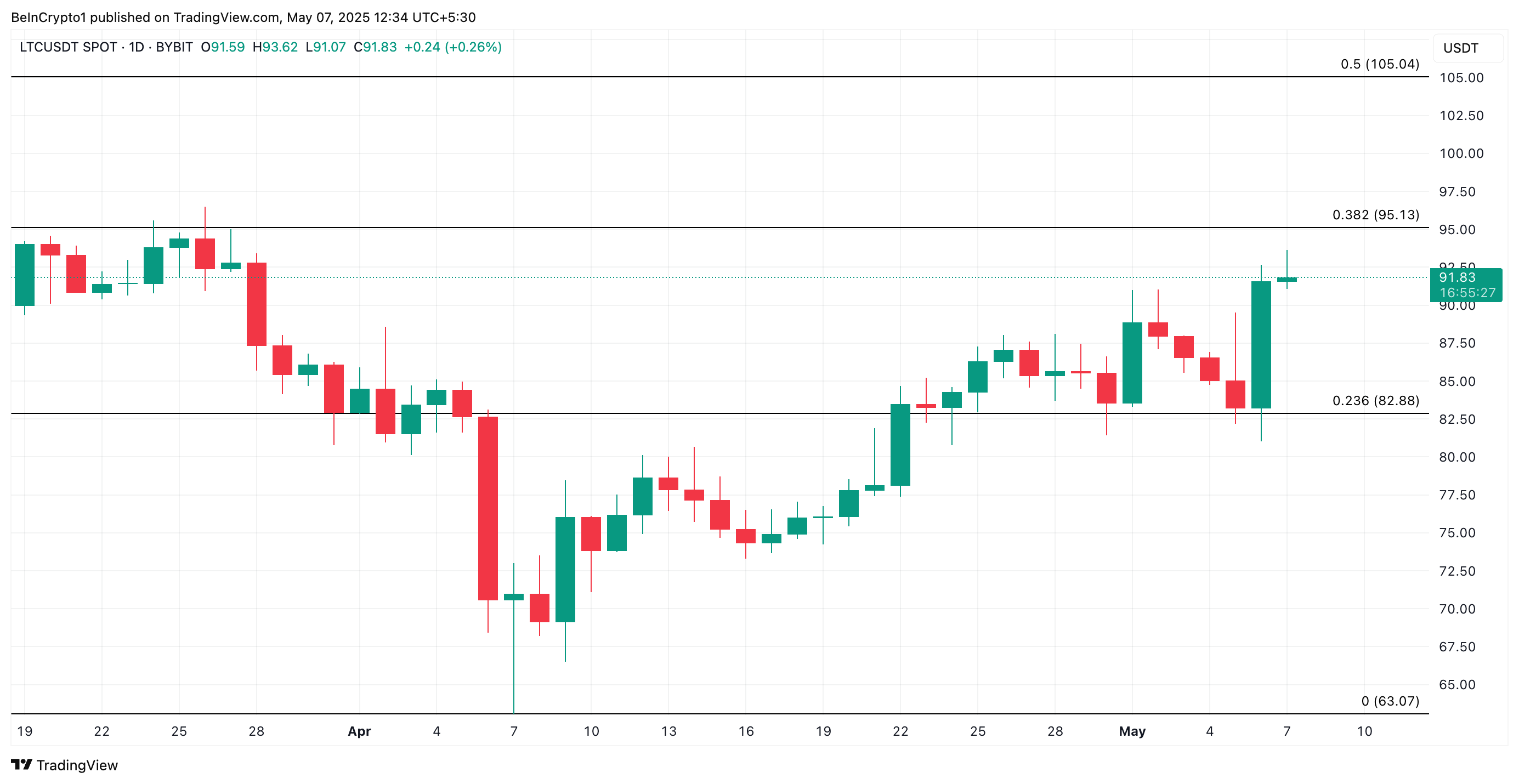According to the latest data, artificial intelligence (AI) agent tokens have outperformed other crypto sectors over the past 30 days, experiencing a remarkable double-digit price growth.
This surge comes amid a broader market recovery, with AI agents emerging as the dominant narrative.
AI Agents Lead Crypto Market Recovery
After enduring significant losses in Q1 2025, the AI agent sector has seen a notable turnaround. In early March, BeInCrypto reported that its market capitalization fell as low as $4.4 billion, marking a sharp 77.5% decline from its all-time high.
Yet, the momentum has reversed. Over the past month, AI agents have seen a 39.4% price growth. The sector has outpaced other narratives like meme coins (+36.9%) and decentralized AI (+16.3%) over the past 30 days.
With the highest relative strength score of +7.7, the tokens have demonstrated exceptional momentum, highlighting their increasing appeal among investors.

CoinGecko data shows that this surge has propelled the total market capitalization of AI agent tokens to $6.4 billion. Among the top ten tokens, Virtuals Protocol (VIRTUAL) has seen an extraordinary 142.8% increase in value, hitting a two-month high. The token’s growth is underpinned by a notable uptick in active users, signaling strong community engagement and adoption.
Moreover, ai16z (AI16Z) and aixbt by Virtuals (AIXBT) have jumped 72.1% and 66.1%, respectively.

“AI agents are the hot rotation right now — and Santiment backs it up with a clear surge in social dominance for “AI agents,” mirroring the sharp sector-wide price rebound,” a user noted on X.
The broader interest in the sector extends beyond the crypto market, as evidenced by Google Trends data. Last week, the search volume for the keyword “AI Agents” peaked at 100. At the time of writing, it stood at 94. This reflected growing public curiosity, both within and outside the blockchain space.
Is FOMO Fueling the Latest Surge in AI Agents?
Nonetheless, despite the bullish sentiment, some experts remain skeptical. Simon Dedic, CEO of Moonrock Capital, drew attention to AI and meme coins’ recent outperformance.
According to him, this trend reflects what he describes as the “ultimate mid-curve trade.” In other words, many investors who had previously remained on the sidelines are now rushing to invest in these sectors. Nevertheless, they are driven by the fear of missing out (FOMO) on potential gains as market conditions improve.
Thus, Dedic is highly critical of this behavior. He suggested that these investors focus more on chasing trends than making sound, long-term investment decisions.
“They deserve to lose it all – and most of them probably will. The real alpha will be in the fundamental catch-up trade and it will outperform everything else,” Dedic claimed.
As the market continues to evolve, only time will reveal whether these tokens can maintain their momentum or if the speculative hype will ultimately fade.
The post AI Agent Tokens Surge 39.4%, Leading Crypto Market’s Comeback appeared first on BeInCrypto.










